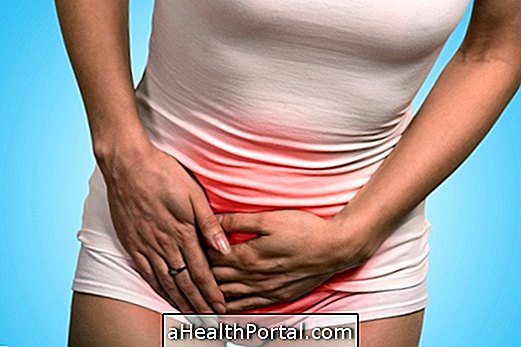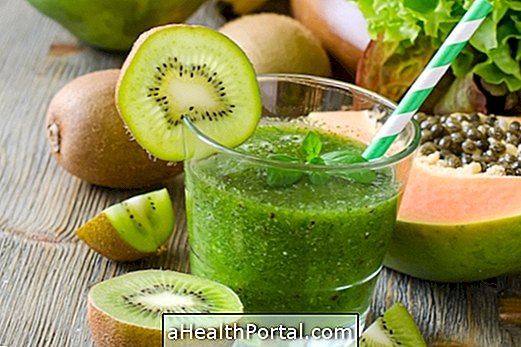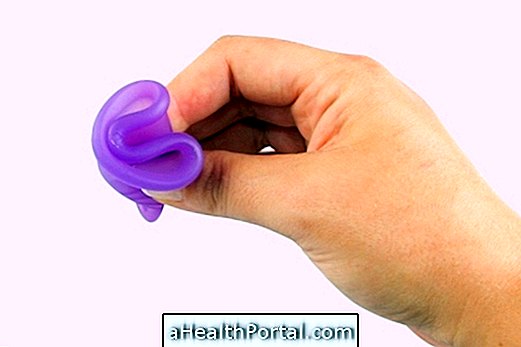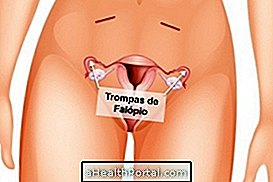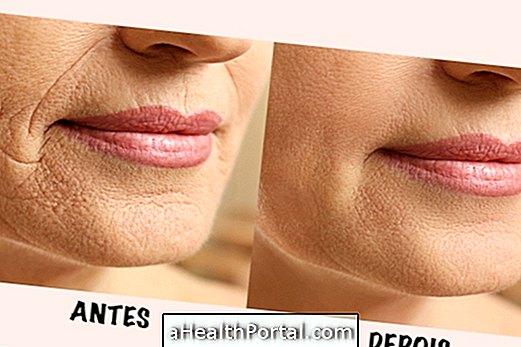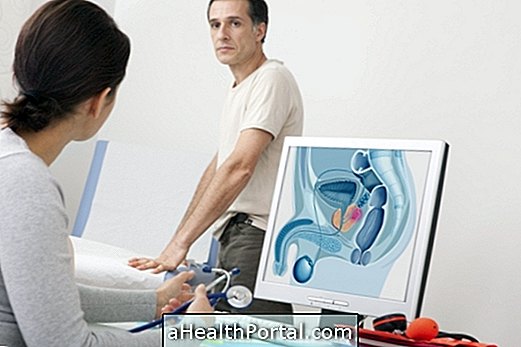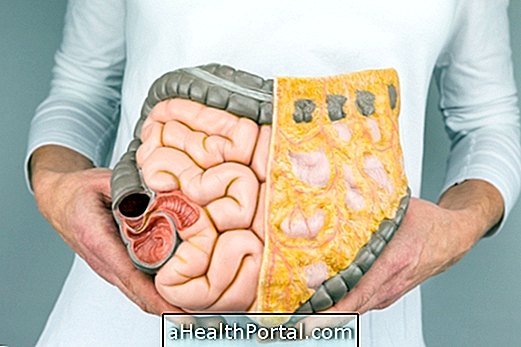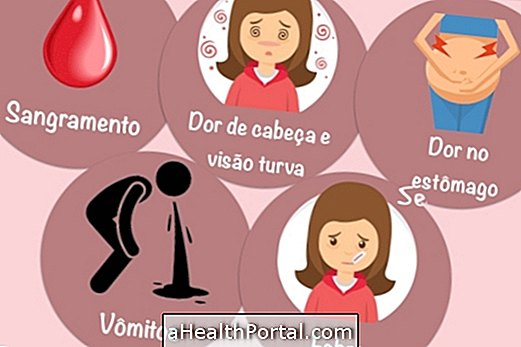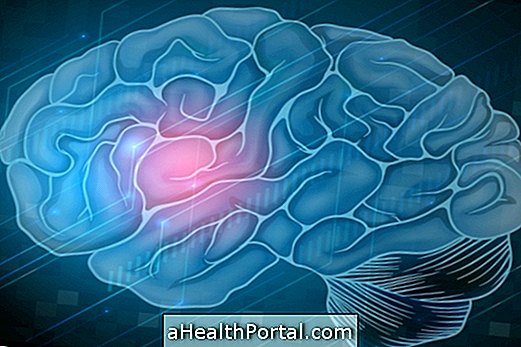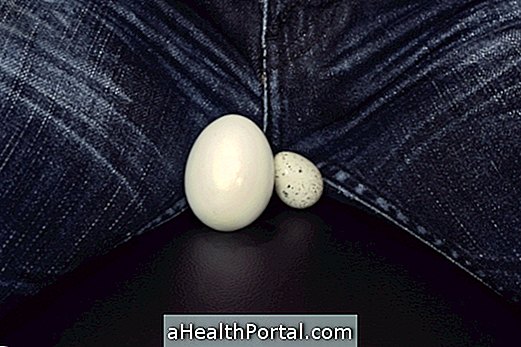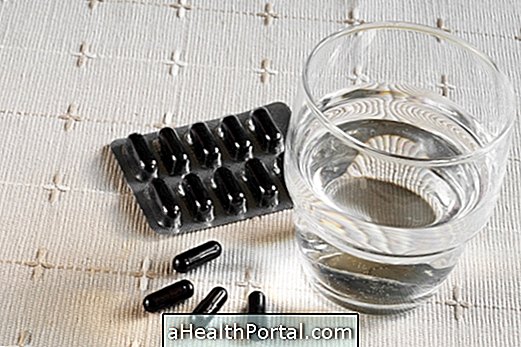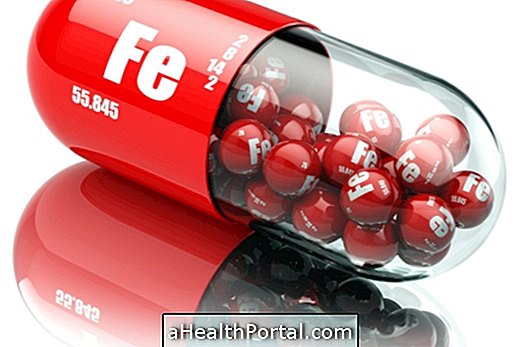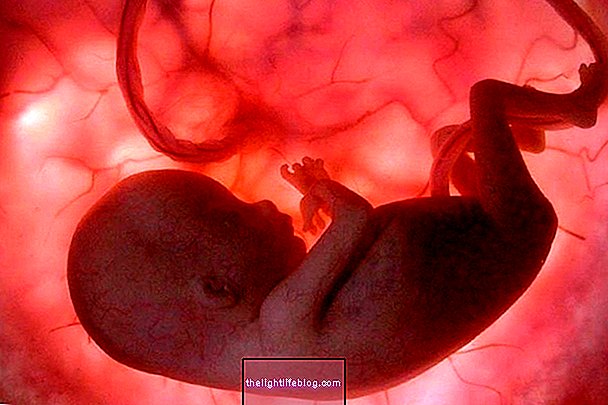The difficulty or inability to reach orgasm can be caused by a disease called anorgasmia, in which the person can not feel the peak of the intimate relationship and begins to have a decrease in sexual desire due to frustration.
This problem affects mainly women, and can be caused by physical or psychological factors that arise during intimate contact and prevent the release of pleasure that characterizes orgasm, which can cause discomfort and pain.
Symptoms of Difficulty Getting to Orgasm
The main symptom of anorgasmia is the absence of orgasm even when there is adequate stimulation during the sexual act. In addition, symptoms of pain in the testicles for men or pain in the lower belly or anal region in women may also appear, which can lead to an aversion to sexual contact.
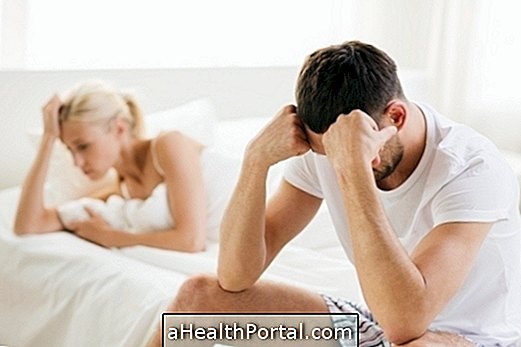
Anorgasmia can be caused by aging due to physical problems due to diseases that affect the body's reproductive region such as diabetes and multiple sclerosis due to gynecological surgeries such as hysterectomy, use of medications to control high blood pressure, depression or allergies, or by use alcohol and cigarettes.
In addition, this problem may also be due to psychological pressures, religious issues, personal problems, a history of sexual abuse, guilt over having pleasure with sex or due to problems in the relationship with the partner.
Types of Anorgasmia
There are 4 types of anorgasmia, as shown below:
- Primary: the patient never had the experience of feeling an orgasm;
- Secondary: the patient used to feel orgasms, but began to have difficulties;
- Situational: Orgasm is not only obtained in some situations, such as during vaginal sex or with a certain partner, but pleasure usually occurs during masturbation or oral sex, for example;
- Generalized: Inability to feel orgasm in any situation.
Thus, the diagnosis is made by the physician based on the clinical and sexual history of the patient, and the physical assessment to identify the presence of changes in the genitals.
Treatments to reach the Orgasm
The treatment of anorgasmia is done with changes in lifestyle, sexual therapy and medication use, as shown below:
Lifestyle
One must seek to know one's own body better by stimulating the sexual appetite, which can be done through masturbation, the use of vibrators and sexual enhancements that increase pleasure during intimate contact.
In addition, you can use new positions and sexual fantasies that stimulate the feelings of well-being and pleasure. See the benefits of female masturbation.
Sexual therapy
Doing double sex therapy helps identify what causes blockage at the time of intimate contact and finding solutions to overcome that problem.
In addition, psychotherapy also helps to assess childhood problems or facts in life that affect the perception of pleasure in sex, such as parental repression, religious beliefs or traumas caused by sexual abuse, for example.
Medicines
The use of medications is indicated to control diseases that may be causing the decrease of sexual pleasure, such as diabetes and multiple sclerosis.
However, the doctor may also indicate pills in the form of pills or creams containing sex hormones to stimulate the reproductive organs, especially in postmenopausal women.
See more tips to improve sexual life in:
- Home Remedies to Increase Your Sexual Appetite
- Foods and Juices for Sexual Impotence
